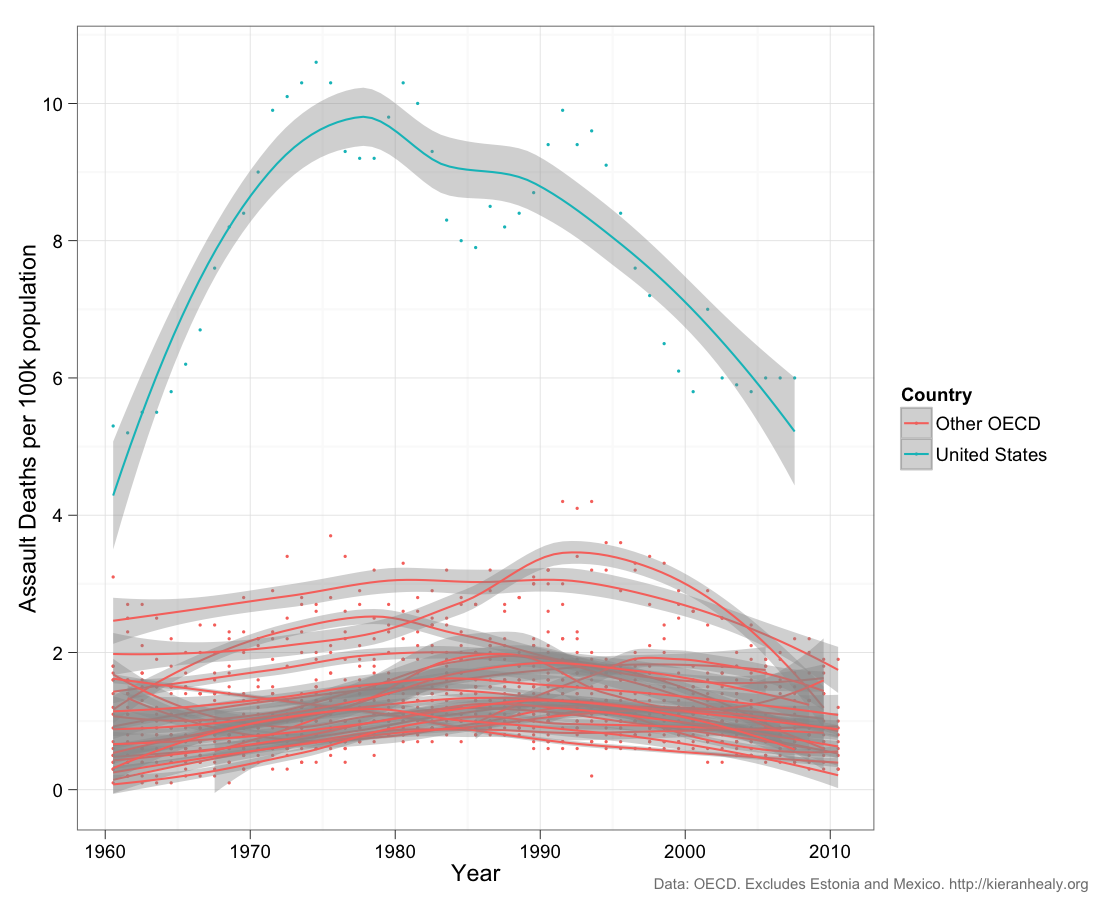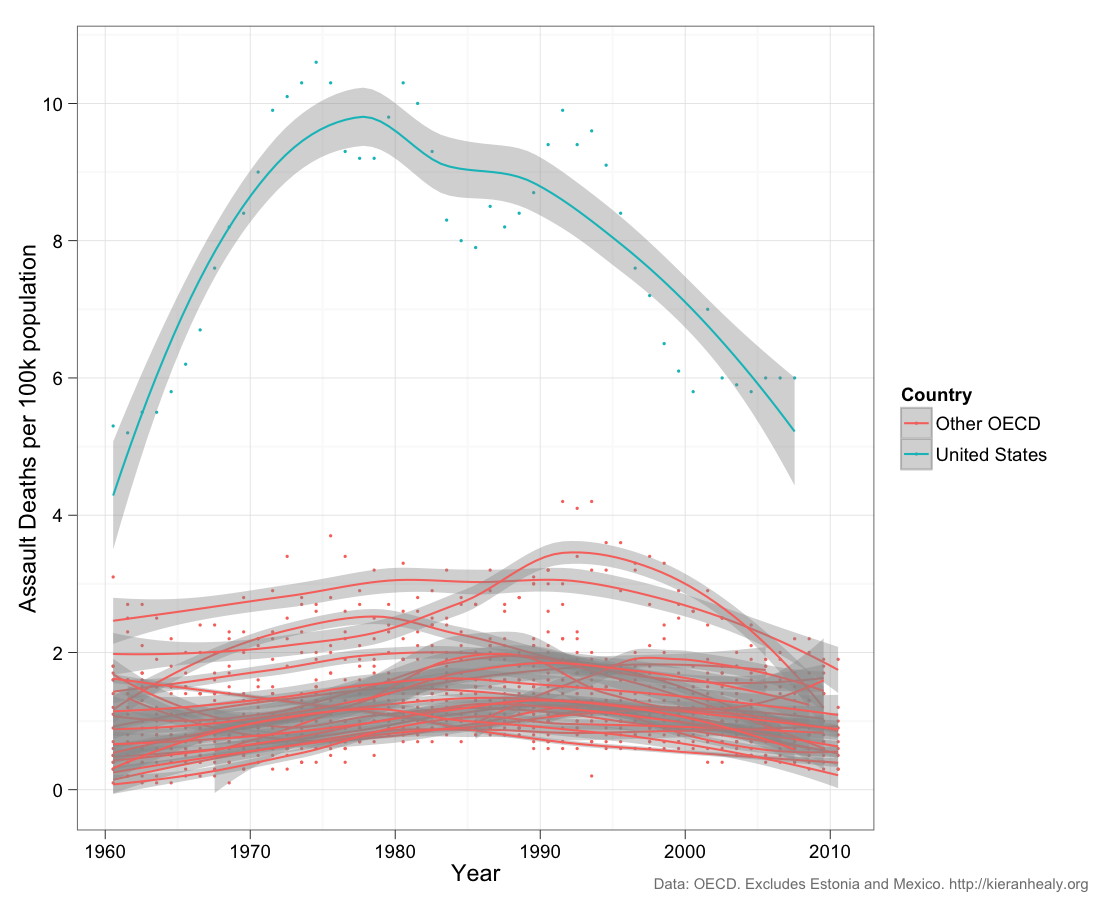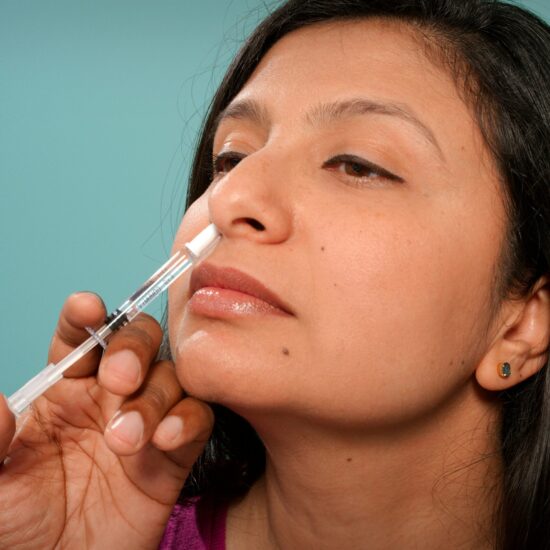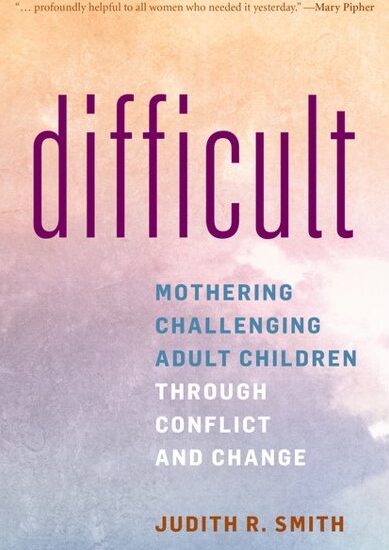
As are so many others, I am deeply saddened by the violent deaths at the Sandy Hook school. Repeated episodes of mass killings may lead us to think that this is simply our world today. It doesn’t have to be. A public health approach to reducing the risk of perpetuating such violence leads to at least the following possibilities:
1. Reinstate the ban on assault weapons. They have no place in hunting and cannot be justified. The Federal Assult Weapon Ban signed into law in 1994 by President Bill Clinton included a sunset provision that allowed it to lapse after ten years. Attempts to restore it have been unsuccessful. A Harvbard School of Public Health review of the evidence on gun control found that fewer guns means fewer murders. For those who dispute the evidence, why would you not want to err on the side of reducing the risk of mass murders by making these guns less available?
2. Physician Denise Dowd, director of the Injury Free Coalitioin for Kids of Kansas City, is calling for all health care providers need to include routine questions for families about whether there are any weapons in the house. A number of years ago, the Oregon Nurses Association was part of a state-wide campaign to encourage primary care providers to ask their patients, particularly those with children living at home, if there were weapons in their homes. Since this is a state that supports gun rights, the campaign focused on encouraging safe storage of guns (including keeping guns stored unloaded and putting the ammunition in a separate locked space), and actually worked with stores to provide discounts on locked gun storage cabinets. In October, the American Academy of Pediatrics reissued a policy statement supporting this position on guns in the home. But the final analysis of the Sandy Hook situation may indicate that this will not be sufficient to stop mass murderers. Health care providers should advise parents to remove guns from their homes, particularly if there is any indication of mental illness in the family.
3. We have a mental health system that is broken, particularly in relation to our nation’s youth. We can and must use the opportunity that the Affordable Care Act is providing to transform how we think of mental health assessment and treatment.
4. Finally, we need to mandate the teaching of non-violent conflict management in all of our schools. The Quakers have long recognized the importance of teaching non-violent responses to conflict and have incorporated it into the Friends Schools’ curriculum. Why aren’t all schools following this model?
The profound sadness that we feel about Friday’s events can be tempered by a commitment to reduce the risk of this ever happening again.
Diana J. Mason, PhD, RN, FAAN, Rudin Professor of Nursing










Vicki Krohn, MSN, RN / December 17, 2012
The lack of universal health care becomes more evident when looking at these statistics. If those perpetrating these horrors were diagnosed and treated perhaps we would see a reduction in this behavior. Ourban mental heath system is seriously overburdened and under funded. Gun control will help, but mental health treatment would go further in solving this problem.
/
suki / December 17, 2012
Every state has decreased funding to mental healthcare. This problem is only going to get worse.
/